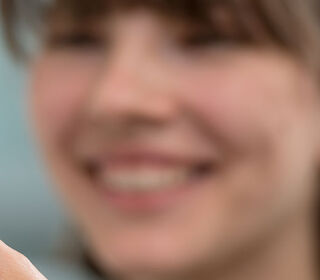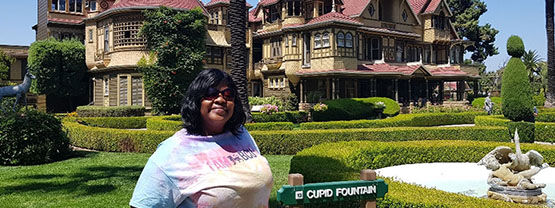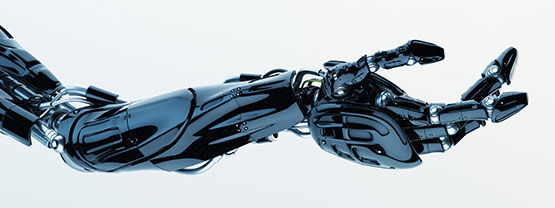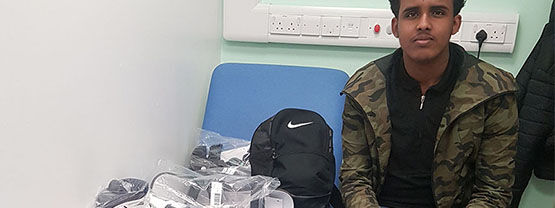
Blog

Work based experience is a great way to enrich your degree and give you an insight into what your future career could look like, which is why some Biomedical Engineering students have found work experience opportunities alongside studying full time on their course.
Living the American dream
We asked second year student Anneline Sibanda about her experience using the HELS Go Abroad scheme, which allows students within the faculty to volunteer, work or study abroad, with the assistance of a travel bursary.
"After my first year at BCU, I spent nine weeks of my summer break in sunny California on a work placement, which I found myself. With the help of the Go Abroad Scheme travel scholarship, I was able to take on the placement and experience what America has to offer!

"During my time in the States, I worked for a company called Easterseals – an organisation that empowers individuals with physical and developmental disabilities. I was able to observe and work on some of the medical devices they produce that really improve people lives. I was based near Silicon Valley, so I was also able to visit the Apple campus and Google headquarters, and learn more about new technologies that relate to my interests and my Biomedical Engineering course. This experience highlighted the range of opportunities and potential avenues open to me in the future. I learned so much while I was there, and the experiences I gained are still having a positive impact on my studies now.
"Whether you want to get work experience, or just do a volunteering project in another country, I’d really recommend applying for the HELS Go Abroad Scheme; I wouldn’t have had the opportunity to do this without it."
Making the arm of the future
Do you have a passion in a particular area that you would like to explore more at university? That’s exactly what Biomedical Engineering student Alex Watts did by undertaking a project alongside his degree to help make his passion a reality with the help of our specialist staff and resources.
"I’ve had an idea around making a new type of prosthetic arm for a while, and I decided to speak to my tutors about it, during my first year of uni. My aim is to develop a hyper-effective, but inexpensive prosthetic arm, which combines the effectiveness of biomimetic robotic design with soft bodied, powerful actuators.

"When I explained my concept for the arm, and my independent experiments on robotic muscle, they saw my potential and gave me the encouragement, support, advice and contacts, to help me to start to make my idea come to life. With their advice, I learned from, and worked with tutors in the Faculty of Computing, Engineering and the Built Environment at Millennium Point, to utilise some 3D printing equipment with stereolithography to produce wonderfully detailed bones of the hand and wrist."
Visit us at our next Open Day
This is the perfect opportunity to chat to our staff and students, and check out our state-of-the-art facilities.
"Building on this, I have done further research into the anatomy of the hand and forearm, and I have copious notes on every bone, muscle, ligament and tendon, and I’m now concentrating on producing muscles. My project is still ongoing, and it is difficult juggling it alongside my studies, but I’m really pleased with how it’s developing, and hope that with hard work and persistence, I’ll be able to get the result I want, and gain a good degree.
"I would certainly recommend working on a project alongside your studies. It’s something to pour passion into and keep you focused on why you're in university. Balance is key, of course, but sometimes it’s just really fun to sit down and actively develop your own vision of the future. Believe in yourself and you can do it!"
Helping patients in Birmingham
Biomedical Engineering students Christina Lawrence and Abdiqani Mohamed are undertaking regular placements within the Orthotics department at the Queen Elizabeth Hospital in Birmingham.

Christina: Our placements have been secured through the University and the hospital, on the back of an initial conversation I had with a visitor at an open day I worked.
Getting to work in a hospital environment, meet patients, and learn from the staff (and patients) has been great, and we’ve only just started! I’m interested in a potential career in medicine after my degree, and I love meeting patients so this is really helping me decide what my future career might be.
We are currently doing a placement 1 day a week, and a typical day can involve shadowing staff and sitting in on clinics, observing examinations of patients to assess their needs, and seeing the treatment and fittings of bespoke external devices (such as prescription insoles, braces, splints, callipers, footwear, spinal jackets and helmets) that will help to make the lives of the patients better.
Abdi: I’m really enjoying sitting in on clinics and seeing a variety of patients with different needs. We get to meet patients with conditions such as Rheumatoid Arthritis. Following surgery, patients need bespoke braces to correct and support their joints. After ankle and foot operations, devices like heel floats, in-soles and bespoke boots may be needed. We are able to observe (and hopefully assist) the Orthotist to make and fit these devices that will provide support, stability, comfort and hopefully reduce the decline of the patient’s condition further.
We have been lucky enough to witness the care and treatment of patients on the wards, including some craniotomy patients – where part of their skull may be missing due to head trauma or a brain tumour – and the bespoke helmets that are made for them to protect their heads during their recovery. We both feel excited and honoured to be able to see this type of work first hand, and it will help us to develop our own devices and projects during the later stages of our degree.